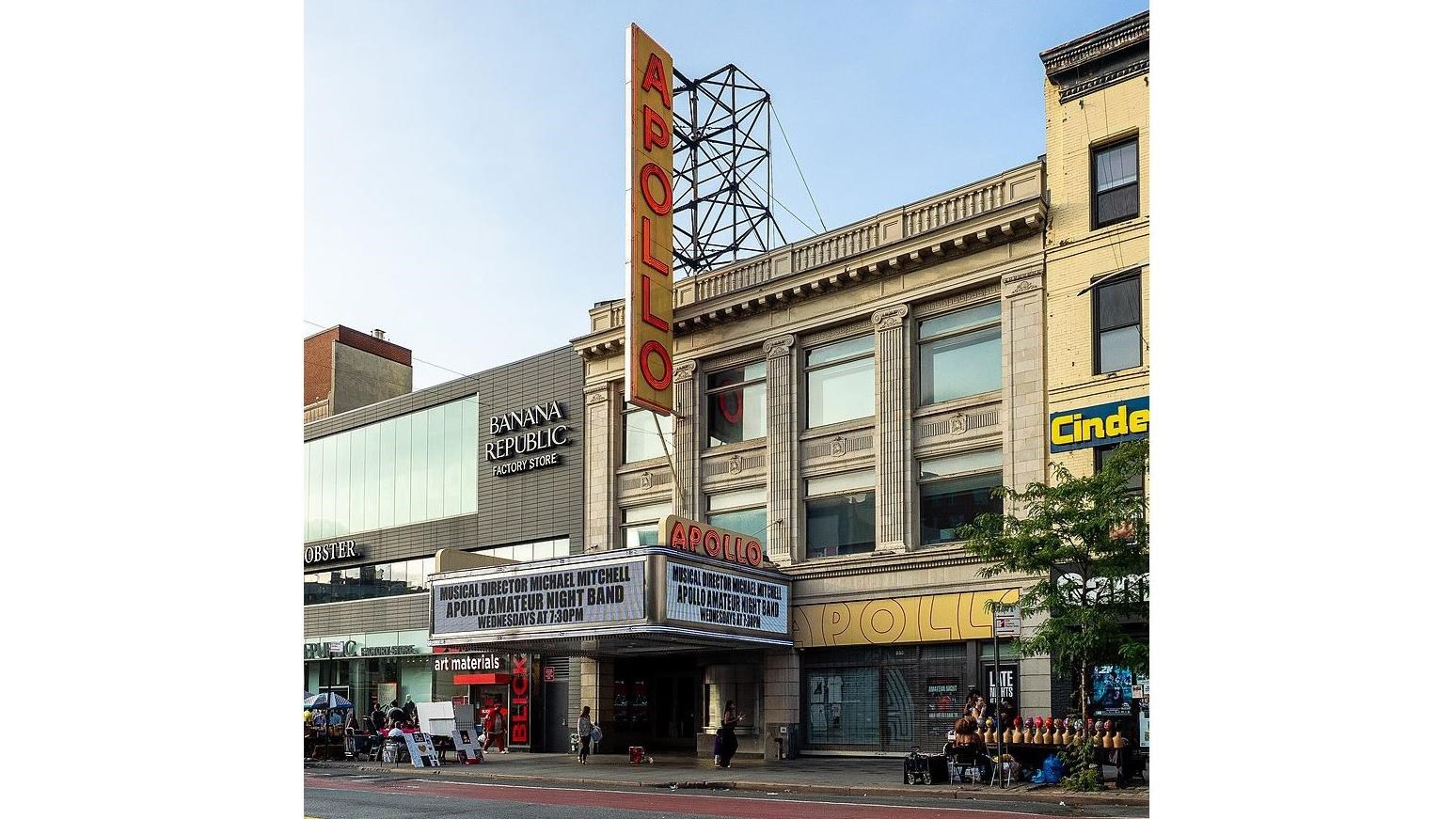Last updated: August 10, 2021
Place
Apollo Theater

Photograph by Ajay Suresh, Harlem - Apollo Theater, cc-by-2.0
Quick Facts
Location:
253 W. 125th St. New York, New York
Significance:
Ethnic Heritage/Black, Architecture, Performing Arts
Designation:
Listed in the National Register – Reference number 83004059
MANAGED BY:
Listed in the National Register of Historic Places in 1983, The Apollo Theater is historically and architecturally significant for its role as one of New York City's and the nation's leading entertainment centers for over four decades. Completed in 1914 as the “New Theater”, the theater originally catered to a primarily white clientele as a burlesque house. The New Theater was in operation until 1934 when the building was purchased by two white businessmen, Frank Schiffman and Leo Brecher, and renamed the Apollo Theater in 1935. Under their direction, the theater presented a permanent variety show format which featured leading black entertainers. The Apollo later became the premier performance hall for black American performers and a symbol of the movement to promote black cultural awareness in the 1930s. Its contribution as a nurturing force and a showcase of black talent ranks it as one of this country's most significant cultural resources.
Nearly every Black American performer has played the Apollo, from blues singer Bessie Smith in the 1930s, to jazz greats Louis Armstrong, Count Basie, and Duke Ellington, to Dinah Washington, Sam Cooke, and the Supremes, through soul singer Aretha Franklin and James Brown in the 1970s. The Apollo became the center for Harlem's popular entertainment and one of the nation's most important arenas for the display of leading black performing talent.
Throughout its history, it displayed every form of popular black entertainment, including comedy, drama, dance, gospel, blues, jazz, swing, bebop, rhythm and blues, rock and roll and soul music. In programing such a variety of Black entertainers, the Apollo's management contributed to the development of Harlem into the major urban cultural and intellectual center in the United States. The Apollo Theater remains as a building of great significance in the history of American culture, as it is a physical representation of the contribution of Harlem and Black Americans to the entertainment of New York City and the nation.
Link to Apollo Theater File
Nearly every Black American performer has played the Apollo, from blues singer Bessie Smith in the 1930s, to jazz greats Louis Armstrong, Count Basie, and Duke Ellington, to Dinah Washington, Sam Cooke, and the Supremes, through soul singer Aretha Franklin and James Brown in the 1970s. The Apollo became the center for Harlem's popular entertainment and one of the nation's most important arenas for the display of leading black performing talent.
Throughout its history, it displayed every form of popular black entertainment, including comedy, drama, dance, gospel, blues, jazz, swing, bebop, rhythm and blues, rock and roll and soul music. In programing such a variety of Black entertainers, the Apollo's management contributed to the development of Harlem into the major urban cultural and intellectual center in the United States. The Apollo Theater remains as a building of great significance in the history of American culture, as it is a physical representation of the contribution of Harlem and Black Americans to the entertainment of New York City and the nation.
Link to Apollo Theater File
